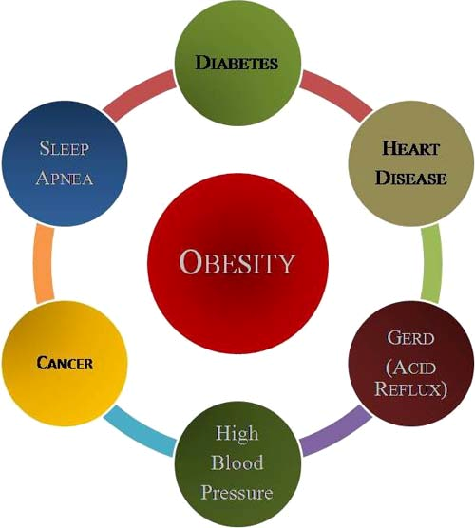Alternative Therapies
- Alternative Medicine
- Access Bars
- Acupressure
- Acupuncture
- Angel Healing
- Ayurveda
- Bach Flower Remedies
- Breathwork
- Cosmetic Acupuncture
- Crystal Healing
- Cupping Therapy
- Emotional Freedom Technique (EFT)
- Ergonomics
- Face Reading
- Fengshui
- Geopathic Stress
- Graphology
- Heal Your Life
- Holistic Solutions
- Holy Fire Reiki
- Homeopathy
- Hypnotherapy
- Jikiden Reiki
- Lama Fera
- Manual Therapy
- Meditation
- Motivational Counseling
- Mudra Healing
- Nakshatra Energies
- Naturopathy
- Neuro Linguistic Programming (NLP)
- Panchakarma (Ayurveda)
- Panchkarma Holistic Healing - Mind Control
- Past Life Regression
- Physiotherapy
- Pranic Healing
- Pyramids
- Reiki
- Rudraksh
- Silva Mind Control Method
- Sujok therapy
- Switchwords
- Symphony of Possibilities
- Tarot
- Unani Medicine
- Yoga
Diseases & Conditions
- Acne & Pimples
- Allergies
- Arthritis
- Asthma
- Behavioural Disorders
- Dandruff
- Diabetes
- Emotional Problems
- Gallstones
- Gastritis
- Hairloss
- Heart Diseases
- Hormonal Problems
- Hypertension
- Immune Disorders
- Infections
- Infertility
- Jaundice
- Kidney Disorders
- Liver Disorders
- Menstrual Disorders
- Migraine
- Neck & Back Pain
- Obesity
- Osteoporosis
- Peptic Ulcer
- Prevention
- Prostate Problems
- Psoriasis
- Sexual Dysfunctions
- Sinusitis
- Sleep Disorders
- Skin Diseases
- Stress
- Thyroid Disorders
- Ulcerative Colitis
- Urinary Infections
General Wellness
Obesity Treatment in Mysore
Dr. Annapoorna Bhat

Dr. Annapoorna is an authorised ayurvedic consultant for ISRO - INDIAN SPACE RESEARCH ORGANISATION, Bangalore since 15 years AND IISc - INDIAN INSTITUTE OF SCIENCE - Bangalore since 10years. She is also a visiting professor at SRIRAGHAVANDRA AYURVEDA MEDICAL COLLEGE, CHITRADURGA.

Acupuncture Healing - Dr. Meeraa Sampath Kumar

Dr. Meeraa Sampath Kumar is a certified holistic health practitioner and a pioneer in the field of Sujok Acupuncture in Karnataka. Highly trained and experienced, she constantly updates her training skills and knowledge in the field of Sujok Therapy and Onnuri medicine....


The definition of obesity varies depending on what one reads, but in general, it is a chronic condition defined by an excess amount body fat. A certain amount of body fat is necessary for storing energy, heat insulation, shock absorption, and other functions. The normal amount of body fat (expressed as percentage of body fat) is between 18%-20% in women and 10%-12% in men.
The calculation of body mass index (BMI) has also been used in the definition of obesity. The body mass index (BMI) equals a person's weight in kilograms (kg) divided by their height in meters (m) squared. Since BMI describes body weight relative to height, it is strongly correlated with total body fat content in adults. "Obesity" is defined as a BMI of 30 and above.
Obesity has reached epidemic proportions in India. One in three four is obese. The prevalence of obesity in children has increased markedly, with approximately 20%-25 % of children either overweight or obese. Obesity is also increasing rapidly throughout the world, and the incidence of obesity nearly doubled form 1991 to 1998.
Obesity is not just a cosmetic consideration; it is a dire health dilemma directly harmful to one's health. Many deaths per year are directly related to obesity, and more than 80% of these deaths are in patients with a BMI (body mass index) over 30. For patients with a BMI over 40, life expectancy is reduces significantly (as much as 20 years for men and 5 years for women). Obesity also increases the risk of developing a number of chronic diseases including.

At present, we know that there are many factors that contribute to obesity, some of which have a genetic component: Genetics, Overeating, A diet high in simple carbohydrates, Frequency of eating. Slow metabolism, Physical inactivity, Medications, Psychological factors. Diseases such as hypothyroidism, insulin resistance, polycystic ovary syndrome and Cushing's syndrome, are also contributors to obesity.
The best and safest way to lose fat and keep it off is through a commitment to a life-long process of proper diet and regular exercise. Medications should be considered helpful adjuncts to diet and exercise for patients whose health risk from obesity clearly outweigh the potential side effects of the medications. Medications should be prescribed by doctors familiar with the patients' conditions and with the use of the medications. Medication(s) and other "herbal" preparations with unproven effectiveness and safety should be avoided.
Almost any of the commercial weight-loss programs can work, but only if they motivate you sufficiently to decrease the amount of calories you eat or increase the amount of calories you burn each day (or both). What elements of a weight-loss program should a consumer look for in judging its potential for safe and successful weight loss? A responsible and safe weight-loss program should be able to document for you the five following features:
1. The diet should be safe. It should include all of the recommended daily allowances (RDAs) for vitamins, minerals, and protein. The weight-loss diet should be low in calories (energy) only, not in essential foodstuffs.
2. The weight-loss program should be directed toward a slow, steady weight loss unless your doctor feels your health condition would benefit from more rapid weight loss. Expect to lose only about a pound a week after the first week or two. With many calorie-restricted diets there is an initial rapid weight loss during the first one to two weeks, but this loss is largely fluid.
3. If you plan to lose more than 15 to 20 pounds, have any health problems, or take medication on a regular basis, you should be evaluated by your doctor before beginning your weight-loss program. A doctor can assess your general health and any medical conditions that might be affected by dieting and weight loss. Also, a physician should be able to advise you on the need for weight loss, the appropriateness of the weight-loss program, and a sensible goal of weight loss for you. If you plan to use a very low-calorie diet (a special liquid formula diet that replaces all food intake for one to four months), you should do so under the close supervision of a health care practitioner.
4. Your program should include plans for weight maintenance after the weight loss phase is over. It is of little benefit to lose a large amount of weight only to regain it. Weight maintenance is the most difficult part of controlling weight and is not consistently implemented in weight-loss programs. The program you select should include help in permanently changing your dietary habits and level of physical activity, and to alter a lifestyle that may have contributed to weight gain in the past. Your program should provide behavior modification help, including education in healthy eating habits and long-term plans to deal with weight problems. One of the most important factors in maintaining weight loss appears to be increasing daily physical activity. Try to be more active throughout the day and incorporate some simple calorie-burners into your everyday routine. Even the most basic activities (such as taking an after-dinner walk, using the stairs at the mall or office instead of taking an escalator or elevator, park your car farther away so you have a longer walk) can get you prepared for more regular exercise like walking or jogging. You may choose to incorporate an individually tailored exercise program into your schedule.
5. A commercial weight-loss program should provide a detailed statement of fees and costs of additional items such as dietary supplements.
Obesity is a chronic condition. Too often it is viewed as a temporary problem that can be treated for a few months with a strenuous diet. However, as most overweight people know, weight control must be considered a life-long effort. To be safe and effective, any weight-loss program must address the long-term approach or else the program is largely a waste of time, money, and energy.




